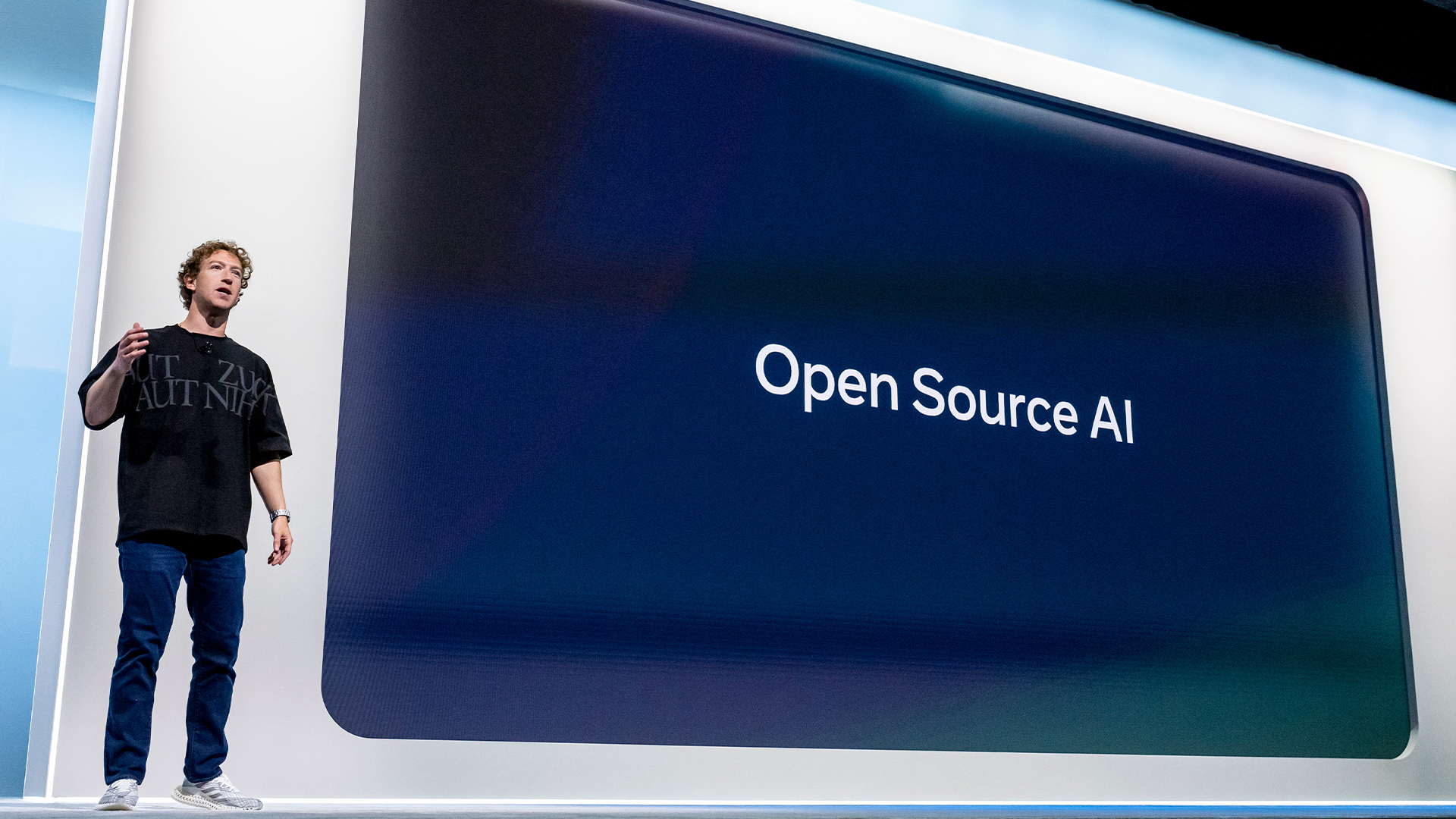Meta faces new ‘open washing’ accusations with AI whitepaper
The tech giant has faced repeated criticism over the framing of its Llama AI models


Meta is facing fresh accusations of “open washing” after sponsoring a Linux Foundation research paper detailing the growth of open source AI solutions.
The study, published earlier this month, highlights the benefits of open source AI systems, noting that they represent the most cost-effective options for enterprises of all sizes—particularly small businesses.
Notably, the study found organizations using closed source AI models could expect to spend around three and a half times more on software compared to open source options.
The research is the latest in a slew of studies touting the benefits of open source AI. A survey from IBM and Morning Consult in January this year showed over half of enterprises using open source AI tools are more likely to see a positive return on investment (ROI).
Two-in-five respondents not yet using open source AI solutions revealed they plan to adopt these tools for AI projects over the next year.
Meta’s involvement in the Linux Foundation study has proved to be controversial in this instance, with critics suggesting that it’s essentially been used to market the company’s ‘Llama’ AI models.
OpenUK chief executive Amanda Brock said these models don’t meet the prerequisites to be classed as truly ‘open source’, yet neither Meta nor the study acknowledge this.
Sign up today and you will receive a free copy of our Future Focus 2025 report - the leading guidance on AI, cybersecurity and other IT challenges as per 700+ senior executives
“Llama isn’t ‘open source’, whatever definition you chose to use for open source,” she said.
“Personally, I prefer the Open Source Software Definition (OSD) from the Open Source Initiative (OSI). Llama doesn’t meet its standard of open source for a number of reasons including the inclusion of a commercial restriction in its licensing,” Brock added.
“This restriction interrupts the free flow at the heart of open source licensing and creates friction. We rely on open source being usable by anyone for any purpose and Llama is not.”
What’s the problem with Meta’s open source claims?
Meta’s flagship Llama model range is described as ‘open source’, but the company has faced repeated pushback from industry stakeholders on this claim, mainly due to disagreements over what actually constitutes ‘open source’.
This point of contention centers around licensing terms imposed upon users once they reach a certain level of commercialization. Essentially, Llama models are open access, but there are limitations imposed upon users in certain circumstances.
Earlier this year, the Open Source Initiative hit out at the company on this topic, insisting that Meta “keeps on falsely promoting Llama as open source”.
While Brock commends Meta for its work with the Llama range as a “step in the right direction” in terms of open source awareness, the promotion of its models here still shows there’s a long way to go before “open washing” can be fully tackled in the tech industry.
“With Meta’s website listing a key takeaway of their report as ‘Linux Foundation Research shows how open source AI models, like Llama, are driving economic growth, innovation and competition by making crucial tech solutions more accessible’, it’s hardly surprising that the OSI is up in arms and accusing the Linux Foundation of supporting open washing,” said Brock.
“Open washing isn’t just an open source issue today. With regulators like the EU using the term open source as the basis of exceptions to liability in AI and the standards that must be met in AI, the impact of open washing has become a societal one.”
Meta isn’t the only industry developer to have fallen foul of the open source definition debate in recent years.
In March 2024, Databricks launched its own large language model, DBRX, which experts at the time also claimed didn’t meet open source standards. This was because it included an external acceptable use policy and operated on a license outside the jurisdiction of the OSI framework.
MORE FROM ITPRO

Ross Kelly is ITPro's News & Analysis Editor, responsible for leading the brand's news output and in-depth reporting on the latest stories from across the business technology landscape. Ross was previously a Staff Writer, during which time he developed a keen interest in cyber security, business leadership, and emerging technologies.
He graduated from Edinburgh Napier University in 2016 with a BA (Hons) in Journalism, and joined ITPro in 2022 after four years working in technology conference research.
For news pitches, you can contact Ross at ross.kelly@futurenet.com, or on Twitter and LinkedIn.
-
 26% of privacy professionals are bracing for a breach this year
26% of privacy professionals are bracing for a breach this yearNews Overworked, underfunded privacy teams are being left hung out to dry by executives
-
 What role does automation play when it comes to IT service management?
What role does automation play when it comes to IT service management?Supported Content ITSM will be a familiar element of many IT departments, but a changing tech landscape requires a new strategy
-
 Workers are wasting half a day each week fixing AI ‘workslop’
Workers are wasting half a day each week fixing AI ‘workslop’News Better staff training and understanding of the technology is needed to cut down on AI workslop
-
 Retailers are turning to AI to streamline supply chains and customer experience – and open source options are proving highly popular
Retailers are turning to AI to streamline supply chains and customer experience – and open source options are proving highly popularNews Companies are moving AI projects from pilot to production across the board, with a focus on open-source models and software, as well as agentic and physical AI
-
 Microsoft CEO Satya Nadella wants an end to the term ‘AI slop’ and says 2026 will be a ‘pivotal year’ for the technology – but enterprises still need to iron out key lingering issues
Microsoft CEO Satya Nadella wants an end to the term ‘AI slop’ and says 2026 will be a ‘pivotal year’ for the technology – but enterprises still need to iron out key lingering issuesNews Microsoft CEO Satya Nadella might want the term "AI slop" shelved in 2026, but businesses will still be dealing with increasing output problems and poor returns.
-
 OpenAI says prompt injection attacks are a serious threat for AI browsers – and it’s a problem that’s ‘unlikely to ever be fully solved'
OpenAI says prompt injection attacks are a serious threat for AI browsers – and it’s a problem that’s ‘unlikely to ever be fully solved'News OpenAI details efforts to protect ChatGPT Atlas against prompt injection attacks
-
 Google DeepMind CEO Demis Hassabis thinks startups are in the midst of an 'AI bubble'
Google DeepMind CEO Demis Hassabis thinks startups are in the midst of an 'AI bubble'News AI startups raising huge rounds fresh out the traps are a cause for concern, according to Hassabis
-
 OpenAI turns to red teamers to prevent malicious ChatGPT use as company warns future models could pose 'high' security risk
OpenAI turns to red teamers to prevent malicious ChatGPT use as company warns future models could pose 'high' security riskNews The ChatGPT maker wants to keep defenders ahead of attackers when it comes to AI security tools
-
 AWS has dived headfirst into the agentic AI hype cycle, but old tricks will help it chart new waters
AWS has dived headfirst into the agentic AI hype cycle, but old tricks will help it chart new watersOpinion While AWS has jumped on the agentic AI hype train, its reputation as a no-nonsense, reliable cloud provider will pay dividends
-
 AWS CEO Matt Garman says AI agents will have 'as much impact on your business as the internet or cloud'
AWS CEO Matt Garman says AI agents will have 'as much impact on your business as the internet or cloud'News Garman told attendees at AWS re:Invent that AI agents represent a paradigm shift in the trajectory of AI and will finally unlock returns on investment for enterprises.